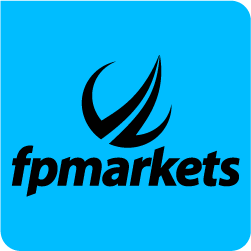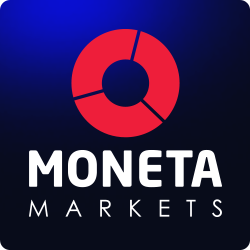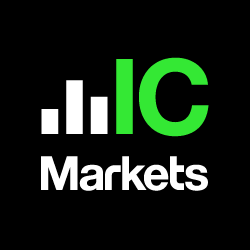Best brokers to trade Gold
Traditionally, Gold was seen as a trusted safe-haven asset, valued for its unwavering stability in times of economic uncertainty. Currently, Gold presents a unique opportunity for investors to hedge against inflation, seek diversification in a portfolio, or speculate on price movements. With high liquidity and ongoing demand, Gold remains one of the most popular choices among individual and institutional investors.
The most common methods used for trading Gold include three primary approaches: Gold CFDs, Gold ETFs, and trading the XAU/USD pair. All these methods have different benefits, from leveraging small price movements in CFDs to long-term investments in ETFs. Among the most traded Forex pairs, the XAU/USD pair represents Gold priced in US Dollars (USD) and stands out for its volatility and consistent market activity.
Only a proper broker can ensure trading success in Gold. The best-rated brokers are those that offer competitive spreads, cutting-edge trading platforms, and the possibility of trading a wide variety of Gold instruments, such as CFDs, ETFs, and futures. This article will review the best brokers to trade Gold and discuss their characteristics, platforms, and conditions for trading.
List of best brokers to trade Gold in 2025
For traders looking to capitalize on the opportunities in Gold trading, choosing the right broker is essential. Below is a curated list of brokers excelling in Gold trading for 2025, with detailed descriptions of their features, strengths, and areas for improvement.
FP Markets: Advanced platforms with competitive pricing
FP Markets is a globally recognized broker that excels in providing a comprehensive trading environment for Gold and other commodities. Known for its tight spreads starting from 0.0 pip on Raw Accounts, FP Markets ensures cost-effective trading for those looking to capitalize on Gold’s price movements. The broker also offers high leverage of up to 1:500, allowing traders to amplify their positions while maintaining flexibility in their strategies. With a focus on fast execution, FP Markets is particularly appealing to scalpers and day traders.
One of FP Markets’ standout features is its support for advanced trading platforms, including MetaTrader 4 (MT4) and MetaTrader 5 (MT5). These platforms provide access to sophisticated charting tools, customisable indicators, and automated trading options through Expert Advisors (EAs). Additionally, FP Markets offers a user-friendly mobile app, ensuring that traders can monitor and execute trades on Gold CFDs seamlessly, even on the go.
Regulated by ASIC (Australia), CySEC (Cyprus), FSCA (South Africa), FSA (Seychelles) and CMA (Kenya), FP Markets provides a secure and transparent trading environment. The broker’s commitment to client education is evident in its range of resources, including webinars, tutorials, and market analysis. With 24/7 multilingual customer support, FP Markets ensures that traders have access to assistance whenever needed, making it a top choice for Gold trading in 2025.
Pros
Tight spreads starting from 0.0 pip, ideal for Gold trading.
Access to MT4 and MT5 platforms with advanced tools.
High leverage of up to 1:500 for international clients.
Strong regulatory oversight under ASIC, CySEC, FSCA, FSA and CMA.
Excellent educational resources and customer support.
Cons
Limited product range for Gold ETFs and derivatives.
Proprietary tools are fewer compared to competitors.
Moneta Markets: User-friendly platforms for Gold traders
Moneta Markets is a versatile broker that has gained popularity for its focus on simplicity and efficiency, particularly for traders interested in Gold CFDs. The broker offers the lowest trading costs on Gold with leverage up to 1:1,000, making it an attractive choice for traders seeking cost-effective solutions. Moneta Markets provides access to Gold CFDs with tight spreads and seamless execution, ensuring traders can capitalize on price movements effectively.
The broker’s proprietary WebTrader platform and AppTrader mobile app are a major draw, offering intuitive interfaces combined with robust charting tools and trading features. For those who prefer industry-standard platforms, Moneta Markets also supports MetaTrader 4 (MT4) and MetaTrader 5 (MT5), catering to both beginners and experienced traders. The integration of mobile trading ensures that traders can stay connected to the markets, making it easier to manage positions in volatile conditions.
Regulated by SCA (UAE) and FSCA (South Africa), Moneta Markets provides a secure environment for trading. The broker also offers swap-free Islamic accounts, catering to traders seeking Sharia-compliant options. With efficient account setup, multiple funding methods, and a 50% Cashback bonus for accounts funded with $500 or more, Moneta Markets ensures a hassle-free experience for its clients, making it a strong contender for Gold trading.
Pros
Competitive spreads and leverage of up to 1:1,000.
Proprietary WebTrader and AppTrader platforms, and support for MT4 and MT5.
50% Cashback bonus for accounts funded with $500 or more.
Offers swap-free Islamic accounts for ethical trading.
Fast account setup and user-friendly interface.
Cons
Its proprietary platforms lack advanced features for professional traders.
Limited educational content compared to larger brokers.
Lacks a tier-1 regulation authority.
IC Markets: Ultra-low spreads and high-speed execution
IC Markets is a leading broker in the CFD trading space, particularly for Gold traders looking for cost-efficient and fast execution. With spreads starting as low as 0.1 pip and leverage of up to 1:500, IC Markets provides an optimal trading environment for scalpers and high-frequency traders. The broker’s institutional-grade liquidity ensures minimal slippage, even during volatile market conditions, making it a reliable choice for Gold trading.
IC Markets supports multiple trading platforms, including MetaTrader 4 (MT4), MetaTrader 5 (MT5), and cTrader, offering a comprehensive suite of tools for technical analysis and automated trading. The platforms are equipped with advanced charting features, customizable indicators, and support for algorithmic strategies, enabling traders to execute precise and efficient trades. For those new to trading, IC Markets provides a range of demo accounts to practice and refine strategies.
Regulated by ASIC (Australia), CySEC (Cyprus), and FSA (Seychelles), IC Markets prioritizes security and transparency. The broker’s multilingual customer support is available 24/7, ensuring that traders have access to assistance whenever required. With its combination of low costs, robust platforms, and reliable execution, IC Markets remains a top choice for Gold trading in 2025.
Pros
Ultra-low spreads starting at 0.1 pip for Gold CFDs.
High leverage of up to 1:500 for international clients.
Access to MT4, MT5, and cTrader platforms.
Regulated by ASIC, CySEC, and FSA for global compliance.
Fast execution with minimal slippage and reliable liquidity.
Cons
Commissions apply on Raw Spread accounts, increasing overall costs.
Limited proprietary tools for Gold-specific strategies.
Customer support is unavailable during weekends.
OQtima: Innovative trading features with customizable options
OQtima is an emerging broker that has established itself as a reliable option for Gold trading, offering customizable account options and transparent pricing. With leverage of up to 1:1,000 and strongly competitive spreads, OQtima is designed to cater to both novice and professional traders. The broker’s proprietary platform, integrated with MetaTrader 4 (MT4), delivers a seamless trading experience with advanced tools for technical analysis and automated trading.
OQtima emphasizes flexibility, allowing traders to tailor their accounts to meet their specific needs. This makes it an appealing choice for those seeking personalized trading solutions. The broker also provides extensive educational resources, ensuring traders have the knowledge to make informed decisions.
Regulated by FSA (Seychelles) and CySEC (Cyprus), OQtima offers a decent trading environment, though some traders may prefer brokers with top-tier regulatory oversight. Multilingual customer support ensures accessibility for traders worldwide, making OQtima a competitive choice in the Gold trading market.
Pros
Ultra-low spreads with leverage of up to 1:1,000.
Seamless integration with MT4 for advanced Gold trading.
Transparent pricing with no hidden fees.
Educational resources and multilingual support for global clients.
Customizable accounts tailored to individual trading needs.
Cons
The regulatory framework under FSA (Seychelles) may not appeal to all traders.
Smaller range of instruments beyond commodities like Gold.
Limited advanced features compared to larger brokers.
FXTM: Tailored solutions for Gold traders
FXTM is a globally renowned broker offering robust trading conditions for Gold traders. Known for its customer-centric approach, FXTM provides access to Gold trading through Gold CFDs, enabling traders to speculate on price movements without owning the physical commodity. With tight spreads starting at 0.1 pip and leverage of up to 1:400, FXTM creates an environment suited for both beginners and experienced traders.
FXTM supports industry-leading platforms like MetaTrader 4 (MT4) and MetaTrader 5 (MT5), offering advanced charting tools, customizable indicators, and support for automated trading strategies. The broker also ensures fast execution speeds and minimal slippage, making it a reliable choice for trading Gold during volatile market conditions.
The broker’s focus on education and support is evident in its extensive learning materials, including webinars, tutorials, and market analysis. FXTM is regulated by top-tier authorities, including the FCA (UK), ensuring a secure and transparent trading environment. With its localized support and multiple payment options, FXTM is particularly appealing to traders in regions with high demand for Gold trading.
Pros
Tight spreads starting at 0.1 pip for Gold CFDs.
Leverage of up to 1:400 for flexible trading.
Supports MT4 and MT5 with advanced trading tools.
Regulated by the UK’s FCA for security and transparency.
Extensive educational resources and localized support.
Cons
Swap fees on overnight positions may increase trading costs.
Minimum deposit requirements are higher for premium accounts.
Limited availability of proprietary trading tools.
What are Gold CFDs?
Gold CFDs (Contracts For Difference) are financial derivatives that allow traders to speculate on the change in the price of Gold without actually owning the precious metal. With the use of CFDs, traders could achieve profit in both ascending and descending markets, becoming a very flexible instrument under short-term trading strategies.
How do Gold CFDs work?
Trading Gold CFDs means that one enters into a contract with the broker, exchanging the difference in the price of Gold from the time the position is opened to when it is closed. This way, even small price movements can potentially be leveraged into large returns thanks to trading on margin.
For instance, if the price of Gold increases from $1,800 to $1,820, a long (buy) CFD position would incur a profit based on the $20 price difference, multiplied by the contract size. On the other hand, if you think the price of Gold will go down, you can short (sell) it and benefit from its fall.
Benefits of Gold CFDs
- Leverage: Amplify returns by dealing with a percentage of the total value of the asset.
- Short selling: Profit from a decline in Gold prices.
- No ownership hassles: Avoid the costs and complexities of storing physical Gold.
Risks of Gold CFDs
- Leverage risk: Losses are magnified if the market goes against you.
- Overnight fees: Positions held overnight may be subject to financing charges.
Gold CFDs are particularly advantageous for traders aiming to leverage short-term fluctuations in the market while minimizing the amount of capital invested initially.
What is a Gold ETF?
A Gold ETF (Exchange-Traded Fund) is a product traded on stock exchanges that electronically tracks the price of Gold. It is designed to enable investors to gain exposure to Gold's price movements without having to hold it physically.
How do Gold ETFs work?
Gold ETFs have physical Gold or Gold futures contracts as the underlying and generally track the price performance of the precious metal in the market. Shares of the ETF can be bought and sold through the brokerage account of investors, making it more convenient for long-term investment.
Benefits of Gold ETFs
- Accessibility: Trade Gold like a stock on major exchanges.
- Diversification: Get exposure to Gold in your investment portfolio without physical storage.
- Low costs: Avoid storage and insurance fees associated with physical Gold.
Risks of Gold ETFs
- Management fees: Some ETFs can charge annual fees that erode returns over time.
- Market dependency: ETF prices may slightly differ from the actual Gold price based on market conditions.
Gold ETFs are suitable for investors who want to invest in Gold in an efficient and simple way over the long term.
How can I start trading Gold?
Getting started with Gold trading involves a few simple steps:
- Choose a broker: pick a reputable broker offering Gold trading via CFDs, ETFs, or the XAU/USD pair. Features to look for include tight spreads, advanced platforms, and regulatory oversight.
- Open a trading account: fill out the application form for account registration and verify identity. Also, most brokers now offer demo accounts for practicing without trading with real money.
- Depositing funds: deposit capital into your account using your preferred payment method. Check the minimum deposit requirements and ensure that the broker accepts your local currency.
- Select your trading instrument: decide whether to trade Gold CFDs, Gold ETFs, or Forex pairs like XAU/USD based on your trading goals and risk tolerance.
- Develop a strategy: plan your trades by analyzing market trends, setting rules for risk management, and identifying entry and exit points.
- Execute your trades: use your broker's platform to place trades, monitor positions, and manage your portfolio effectively.
What is the available leverage for Gold?
Leverage allows traders to control larger positions with a smaller amount of capital. The amount of leverage available for trading Gold varies depending on the broker and the regulatory jurisdiction.
MetaTrader 5 (MT5): The multi-asset update
- Retail brokers: Many brokers offer a leverage of as high as 1:20 or even 1:50 for Gold CFDs.
- Professional accounts may offer higher leverage, such as ratios of 1:100 or 1:200, to traders who meet certain criteria.
Regulatory Impact
In certain regions, such as the European Union (EU) and Australia, regulatory policies cap leverage for retail traders as a way of protecting them from excessive exposure to risk. Brokers operating in regions with less stringent regulations may, however, offer higher leverages.
While leverage increases profit potential, it also increases losses. Traders must use leverage with caution and employ risk-management tools, such as stop-loss orders, to mitigate potential downsides.
What is the minimum deposit for Gold trading?
The minimum deposit to trade Gold would vary depending on the broker and the type of trading account.
Some brokerage firms assist beginner traders by opening accounts with a minimum deposit of between $10 and $100, making it relatively affordable for those with a small amount of money to use.
More professional accounts with tighter spreads, or features like personalized account management, may require $1,000 or more in deposits.
Conclusion
Gold trading is a versatile and profitable opportunity for traders looking to diversify their portfolios, hedge against economic uncertainty, or capitalize on short-term price movements.
There are many ways to enter the market, whether through Gold CFDs, ETFs, or the XAU/USD pair.
In all cases, the selection of a good Gold broker that has competitive spreads, state-of-the-art platforms, and appropriate leverage options is important in conducting Gold trading. By understanding the basics, traders can unlock the full potential of this timeless asset by choosing the right tools.
FOREX BROKERS FAQs
How to choose a Forex Broker?
When choosing a Forex broker, it is crucial to look beyond surface-level features and consider comprehensive data sets provided by various brokers. The following key factors should be evaluated:
Trading Platform and Execution: Assess the reliability, speed, and functionality of the trading platform. Look for features such as customisable interfaces, advanced charting tools, order execution speed, and mobile trading app availability. Analyse historical data on platform performance, including uptime, latency, and order execution times.
Asset Offering and Market Coverage: Examine the range of tradable assets and market coverage offered by each broker. Evaluate data sets on available currency pairs, commodities, indices, and cryptocurrencies. Consider factors like liquidity, spreads, and overnight financing rates across different asset classes.
Regulatory Compliance and Security: Review data sets related to regulatory compliance and security measures implemented by brokers. Check for licences from reputable financial authorities and adherence to strict regulatory standards. Assess the broker's track record regarding security breaches, data protection measures, and client fund segregation.
Trading Costs and Fee Structures: Analyse fee structures, spreads, commissions, and hidden charges associated with trading. Compare data sets on bid-ask spreads, overnight financing rates, deposit/withdrawal fees, and inactivity fees across different brokers. Consider the overall cost of trading, including transaction costs and funding expenses.
By thoroughly analysing these factors and comparing the offerings of different brokers, you can make an informed decision and find a forex broker that aligns with your trading objectives, preferences, and risk tolerance.
How to know which Forex broker is the best?
To determine the best Forex broker, it is essential to compare data sets across various brokers and tailor your selection to your personal needs.
The best top-tier brokers will have a very wide range of tradable assets, good liquidity providers, STP (straight through processing), low spreads, fees, and commissions.
They will have full regulatory compliance with reputable authorities, strong security measures, data protection, and fund segregation.
Deposits and withdrawals will be fast, and the interface easily navigated.
By thoroughly comparing the data sets covered, you can identify the Forex broker that best meets your trading objectives and personal needs, ensuring a well-informed and tailored decision.
What is Forex trading?
Forex trading, also known as foreign exchange trading, is the act of buying and selling currencies on the foreign exchange market with the aim of making a profit. It is one of the largest and most liquid financial markets globally, with a daily trading volume exceeding $6 trillion.
At its core, Forex trading involves speculating on the relative value of different currencies. Traders aim to profit from fluctuations in exchange rates between currency pairs, such as EUR/USD or GBP/JPY. The Forex market operates 24 hours a day, five days a week, allowing traders to engage in trading activities at any time.
Forex trading is also a loose term for CFD trading. CFD is short for ‘contract for difference’ and is the method of speculating on the underlying price of an asset, like shares, indices, commodities, cryptos as well as currencies.
Forex trading offers advantages, including high liquidity, low transaction costs, and the ability to trade on leverage, which allows traders to control larger positions with a small amount of capital. However, it also carries risks, so traders should carefully consider their risk tolerance and trading strategies before entering the market.
Is Forex profitable?
Forex trading has the potential to be profitable for traders who possess the necessary knowledge, skills, and discipline. However, it is essential to understand that forex trading is not a guaranteed way to make money, and success should never be taken for granted.
The profitability of Forex trading depends on key factors, including market conditions, trading strategy, risk management, and individual trader psychology. While some traders may experience significant profits, others may incur losses. It is crucial to approach Forex trading with realistic expectations and a well-defined trading plan.
One of the advantages of Forex trading is its high liquidity, allowing traders to enter and exit positions with ease. Additionally, the ability to trade on leverage can amplify profits, but it also increases the potential for losses. Effective risk management is essential to protect capital and ensure long-term profitability.
Whether Forex trading is profitable for an individual trader depends on their ability to analyse the market, implement a sound trading strategy, and manage risk effectively.
Success in Forex trading requires continuous learning, adaptability, and discipline. While it can be profitable, it is not without risks, and traders should be prepared to face both profits and losses in their trading journey.
Brokers featured in this article may have paid for placement. While we maintain editorial independence and carefully evaluate all options, featured companies in Branded articles compensate us for inclusion. Here's an insight into how we make money. While we strive to be comprehensive, the compensation we receive can influence the products, companies, or services we showcase and review. Not all available options may be featured on this page.









